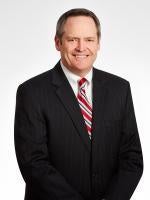In the late autumn of 2012, an otherwise innocuous private Facebook discussion amongst employees of Skinsmart Dermatology (Skinsmart) suddenly devolved into an expletive-laced tirade. At one point during the conversation an employee boasted that she told her supervisor to “back the freak off,” called her employer “full of sh**,” and dared Skinsmart to “fire” her and “[m]ake [her] day.”
Notably, none of the other participants in the Facebook chat directly responded to the employee’s comments. One of those participants, however, reported the employee’s remarks to Skinsmart, who promptly fired her after concluding that it was “obvious” she did not want to continue working there.
Following her termination, the employee filed an Unfair Labor Practice Charge (ULP) with the National Labor Relations Board (NLRB) claiming that Skinsmart fired her in violation of the National Labor Relations Act (NLRA). The NLRA prohibits an employer from interfering with or restraining an employee’s right to engage in “protected concerted activities.”
As background, “protected” activities include discussing wages, hours and other terms and conditions of employment with coworkers. “Concerted” activities include: (1) when an individual employee seeks to “initiate or to induce or to prepare for group action”; (2) where an individual employee brings “truly group complaints” to management’s attention; and (3) where employees discuss “shared concerns” among themselves prior to any specific plan to engage in group action.
After analyzing the evidence, the NLRB’s Division of Advice recommended dismissal of the employee’s ULP Charge. First, it found the terminated employee’s Facebook comments were “an individual’s gripe” rather than an expression of “shared concerns” over working conditions among employees. Second, it found there was no evidence that the terminated employee’s coworkers viewed her remarks as an assertion of shared concerns regarding employment conditions. Consequently, the Division of Advice concluded that the employee did not participate in concerted activity, and therefore Skinsmart did not illegally fire her in response to her Facebook comments.
Significantly, before recommending dismissal of the ULP Charge, the Division of Advice also considered whether the terminated employee’s comments constituted “inherently concerted” activity that deserved protection under the NLRA.[1] While the Division of Advice ultimately ruled that they were not, its consideration of “inherently concerted” activity suggests that it will continue to interpret “protected concerted activity” as broadly as it can.
Under the “inherently concerted” analysis, an employee’s expressions may be considered protected concerted activity if those expressions involve “subjects of such mutual workplace concern” like wages, schedules, and job security, even if there was no contemplation of group action. Because the employee’s posts did not relate to any of those mutual workplace concerns, the Division of Advice concluded, the employee did not engage in “inherently concerted” activity.
In light of Skinsmart, before taking any adverse action against an employee for inappropriate social media communications, an employer should scrutinize the employee’s comments to determine whether they constitute an individual gripe or protected concerted activity. Because the NLRB has targeted “Facebook firings” as infringing on employees’ right to engage in protected concerted activity, we recommend that employers undertake this analysis with the benefit of counsel to minimize their exposure to a ULP Charge or other legal action.
[1] The term, “inherently concerted,” arose out of an earlier NLRB decision in 2012. See Hoodview Vending Co., 359 N.L.R.B. No. 36 (2012).



 />i
/>i

